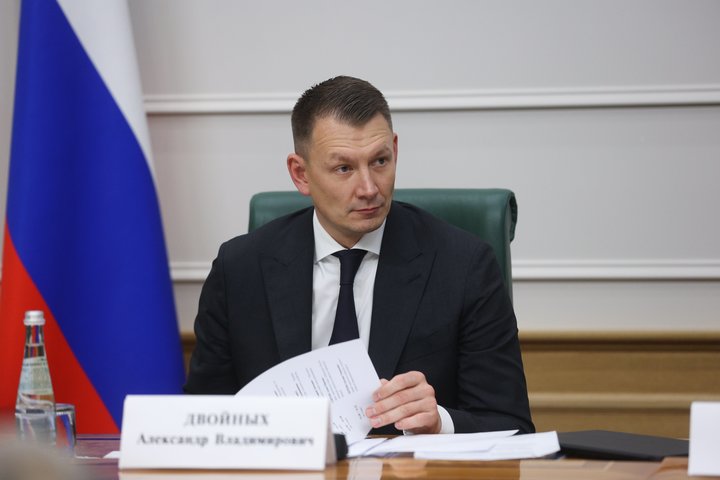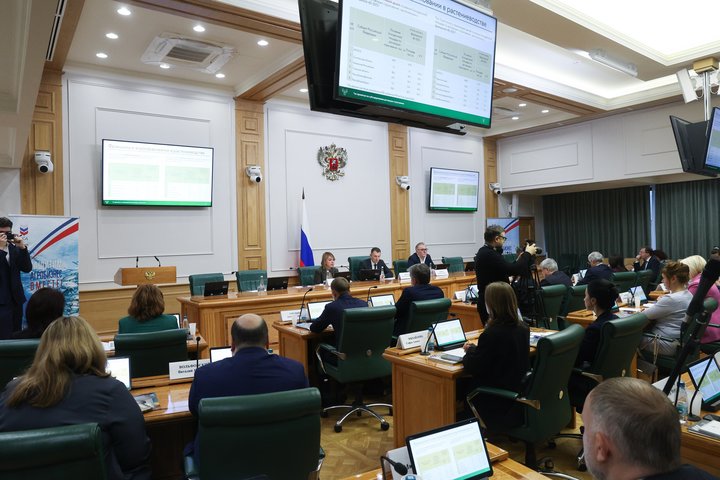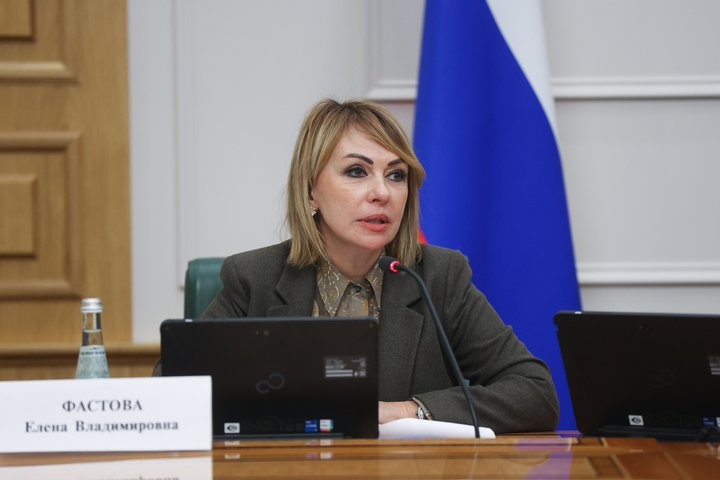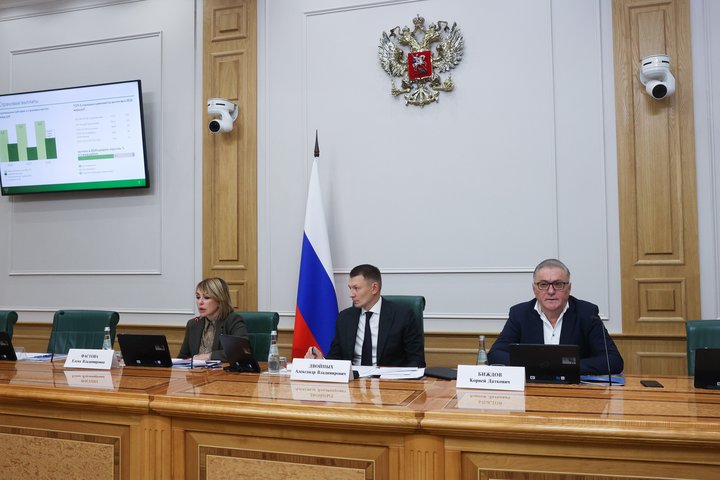Alexander Dvoynykh: ‘We will analyse the next topic in Tatarstan — let’s listen to what hinders enterprises’
The Federation Council has discussed the work of the regions on agricultural insurance

For more than two years, a new tool has been working in Russia to help farmers — agricultural insurance with state support against natural emergencies. The Federation Council noted that climatic anomalies have already proved the relevance of the system, they summed up the results of risk reduction activities in the agro-industrial complex and listened to the leading regions. Tatarstan was not among them. The head of the relevant committee of the Federation Council, Alexander Dvoynykh, commented to Realnoe Vremya: “I consider it our flaw that we have not found out why Tatarstan still has low results in agricultural insurance.” However, the republic was noted for other achievements in the field of insurance of farmers.
“The system has proven its relevance”
Agricultural insurance with state support appeared in Russia in 2022. With the new tool, it has become easier for farmers to compensate for losses in case of loss of crops or poultry and livestock due to droughts, floods, fires and other disasters. The preliminary results of the agricultural insurance system were discussed on 3 December at a meeting of the relevant committee of the Federation Council with the participation of insurers, representatives of the Ministry of Agriculture of the Russian Federation and the regions.
“The state should annually deal with issues of insurance against risks of crop loss. In addition to the main instrument of compensation as a result of an emergency, we provide agricultural insurance. This year, in the conditions of natural anomalies, the system has fully proved its relevance," said Alexander Dvoynykh, the chairman of the Federation Council Committee on Agrarian and Food Policy and Environmental Management.

The preliminary results of the agricultural insurance system were discussed on 3 December at a meeting of the relevant committee of the Federation Council with the participation of insurers, representatives of the Ministry of Agriculture of the Russian Federation and the regions.
According to him, the task of agricultural insurance is to maximally relieve the burden on the state to carry out unplanned expenses. Addressing colleagues from different regions of the country, he asked them to evaluate this work and recalled that the emergency regime in connection with adverse natural phenomena this year affected the agro-industrial complex of many regions and was announced 32 times.
First Deputy Minister of Agriculture of the Russian Federation Elena Fastova spoke about the first results of the agricultural insurance system with state support. The speaker noted that the limits of the programme are growing every year.
“Federal budget expenditures are growing, and, accordingly, part of the funds from the regional ones is subsidised. For 2024, together with the regions, we had 6.1 billion rubles for agricultural insurance, for 2025 — 6.8 billion, that is, we are adding about 700 million for insurance next year," she said.
"1.2 billion rubles have already been paid under insurance claims”
The most common type of agricultural insurance with support concerns crops. About 15% of the total acreage is insured, the plan is to reach 17.3% by the end of the year. As of today, insurance contracts have been concluded for 12 million hectares, and soon there will be 15 million hectares. Next year, a more ambitious goal is set — 20% of the sown area in the country, or 17 million hectares.
The indicators for animal insurance are also growing — 44%, or almost half of the livestock in Russia. In the field of aquaculture, the results are noticeably lower: “That year we had 5%. This year we have also set this milestone, but most likely, unfortunately, it will not work. This type of insurance turned out to be not the most common, there are problems, but we will work," Fastova said.

The deputy minister also cited the total amount of financing in agricultural insurance in certain sectors. Thus, in the field of crop production in 2024, 3.7 billion rubles were allocated from the federal budget, 0.7 billion from the regional budget and 2.7 billion at the expense of agricultural producers themselves. 1.4 billion rubles were allocated from the Russian treasury for animal husbandry, 0.3 billion — from the budgets of the constituent entities of the Russian Federation and 1.1 billion — from the farmers themselves. The plans for next year are to increase the volume of financing in both directions and keep the bar of previous years at 5% in aquaculture.
“This year was not easy, we had return freezes in 11 regions of the country. Of the amount of the listed subsidies, 1.2 billion rubles have already been paid from the federal budget for insurance cases. That is, we see that the insurance companies do pay, and our task is to ensure that everyone who is faced with a similar situation receives their payments. In 2024, a little more was paid by insurance companies so far. Moreover, as you know, this type of insurance is paid within 10 days," she noted.
“Let's hear what hinders Tatarstan enterprises”
At the end of the report, Elena Fastova presented regional ratings on agricultural insurance. Thus, the top 5 regions of the country in terms of the share of insured acreage includes the Trans-Baikal Territory (67%), Lipetsk Region (51%), Tambov Region (40%), Krasnoyarsk Territory (36%), Omsk Region (35%). The top 5 regions in terms of the share of insured livestock include Penza Region (80%), Khabarovsk Krai (79%), Oryol Region (70%), Kemerovo Region (70%), Voronezh Region (59%).\
Other ratings were given during the speech, but Tatarstan did not lead in them, which is strange given the republic's status as one of the leading regions of Russia in the field of agriculture.
“Why is the republic not in any top agricultural insurance, how do you assess Tatarstan's position?” Realnoe Vremya asked during the press approach.
“This is surprising to me, because Tatarstan is generally a unique region from the point of view of agricultural culture. I know the position of the leadership. We have been given a task on these issues: we will analyse the next topic particularly regarding Tatarstan, listen to what hinders enterprises, what they may not like. Tatarstan always has the most constructive approach, it is an agrarian leader. I consider it our flaw that we did not gather insurers, the Ministry of Agriculture of the Republic of Tatarstan and did not find out why Tatarstan still has low results in agricultural insurance," Alexander Dvoynykh replied.
According to him, this may be due to “the great internal support that the regional government provides to farmers.” Perhaps, he added, it was previously possible to make more payments from the Tatarstan budget in the event of an emergency. “But colleagues believe that this is not necessary. It is becoming difficult for the budget, and risks need to be managed," said Alexander Dvoynykh.
However, the republic was noted for other achievements. Tatarstan representatives were awarded for their contribution to the development of agricultural insurance with state support and achievement of high results in the field of crop production and animal husbandry.
“The option to insure with a deductible of up to 50% is not provided”
Another issue that was discussed at the meeting concerned legislative innovations. The draft law on amendments to the laws on state support in the field of agricultural insurance and agricultural development passed its first reading in the State Duma. The document proposes to reduce the maximum size of the unconditional franchise under crop and perennial plantings insurance contracts to 30% of the insured amount. Currently, a deductible of up to 50% is in effect, which significantly reduces the insurance payout, and in some cases leads to the impossibility of receiving it if the deductible fully covers the amount of the loss incurred by the policyholder.
“The problem is that our law does not provide for the possibility to insure with a deductible of up to 50%. And we all know that the higher the deductible, yes, the cheaper the contract, but it also means less payments. There are five regions where all contracts were with a high franchise, that is, those for which, most likely, there will be no payments," explained Elena Fastova.

The authors of the law propose to introduce the possibility to establish a separate franchise for each type of culture. For example, for apple or pear trees — taking into account the cost and timing of their cultivation, and do not apply one franchise for the entire group of perennial plantations.
The list of insurance events in the field of animal husbandry will also be changed. Farmers will be able to receive payments for the death of animals in the event of an outbreak of a contagious disease, regardless of whether the fact of their disease is confirmed, within the framework of one insured event. Now insurers are assessing the damage in two directions: the loss of livestock as a result of illness and the need to slaughter the entire herd. When calculating the payment, the deductible amount is deducted for each insured event, and manufacturers receive incomplete insurance compensation.
“It is not true to say that we are completely satisfied with the development of agricultural insurance. We are determined to improve this system so that farmers enter with greater intensity and greater involvement. So that they do not remain distrustful, as in many regions, and which, unfortunately, still exists," said Korney Bizhdov, the president of the National Union of Agricultural Insurers (NSA).
The new law will expand the list of natural hazards and natural disasters, adding natural phenomena such as high water and high water. During these cataclysms, farmers may lose crops and animals, lose their farms and other structures, or suffer heavy losses if they are damaged by water.